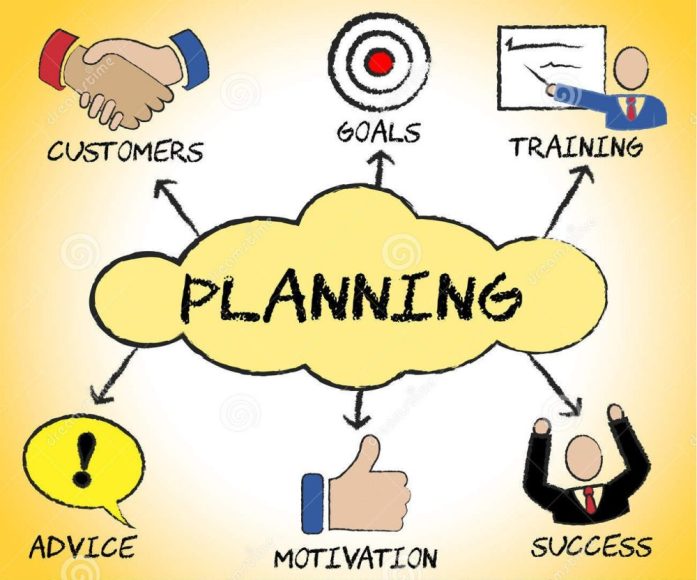In today’s fast-paced and complex business landscape, effective project management skills have become indispensable for organizations across various industries. Whether you’re leading a small team or overseeing a large-scale project, possessing a robust set of project management skills is essential for success.
This article aims to provide a detailed overview of the key project management skills, highlighting their significance and offering practical insights for developing and honing these abilities.
I. Leadership and Communication Skills:
Effective project management skills are essential for successful project execution, and two key components of these skills are leadership and communication. Leadership involves guiding a project team with a clear vision and purpose, while communication ensures seamless information flow and stakeholder engagement.
Strong leadership and communication skills are critical for project managers to inspire their teams, align project goals, and foster effective collaboration.
In this part of article, we will explore the significance of leadership and communication skills within the context of project management, providing insights on how professionals can develop and enhance these essential abilities.
Leading with Vision and Purpose:
Effective project managers possess a clear vision and purpose for their projects. They define project goals and objectives, articulate a compelling project vision, and ensure that team members understand and align with the project’s purpose.
Effective Communication:
Communication is a cornerstone of successful project management. Project managers must excel in active listening, providing clear and concise verbal and written communication, and actively seeking and providing feedback. Additionally, they must be skilled in stakeholder engagement and management, ensuring that all relevant parties are informed and involved throughout the project lifecycle.
Read Also: Key Factors That Lead to IT Project Failures
Influencing and Negotiation:
Project managers need to navigate complex relationships and situations. They must be adept at building consensus among team members, resolving conflicts and managing disagreements, and negotiating with stakeholders to achieve project objectives.
II. Planning and Organizational Skills:
Project management skills encompass a wide range of competencies, and among the most vital are planning and organizational skills. Effective project planning involves meticulous attention to detail, strategic thinking, and the ability to coordinate various project elements. Organizational skills are crucial for managing resources, setting priorities, and ensuring smooth project execution.
In this part of article, we delve into the significance of planning and organizational skills within the realm of project management, providing valuable insights and practical tips for honing these critical abilities. Whether you’re a seasoned project manager or aspiring to become one, mastering planning and organizational skills will significantly contribute to your success in delivering projects on time and within budget.
Project Initiation and Scope Management:
Successful project management begins with thorough project initiation and scope management. This involves conducting feasibility studies and risk assessments, defining project scope and deliverables, and setting realistic project timelines and milestones.
Work Breakdown Structure (WBS) and Task Scheduling:
Breaking down the project into manageable tasks is essential for effective project planning. Project managers should excel in developing a comprehensive Work Breakdown Structure (WBS) that divides the project into smaller, actionable tasks. They must estimate task durations and dependencies accurately and create a detailed project schedule to ensure timely completion.
See Also: 25 Best Task Management Software in 2024
Resource Allocation and Management:
Resource allocation and management are crucial for project success. Project managers must have the ability to identify and acquire necessary resources, optimize resource utilization, and effectively manage and mitigate resource constraints to ensure that the project runs smoothly.
III. Risk Management and Adaptability:
In the dynamic landscape of project management, the ability to effectively manage risks and adapt to changes is paramount for success. Risk management skills equip project managers with the foresight to identify potential pitfalls, assess their impact, and develop proactive strategies to mitigate or minimize their effects.
Additionally, adaptability is a key trait that allows project managers to navigate unforeseen challenges and embrace evolving project requirements.
In this part of article, we explore the criticality of risk management and adaptability within the realm of project management skills. By honing these abilities, project managers can proactively tackle uncertainties and flexibly respond to changes, ensuring project success in even the most complex and unpredictable environments.
Risk Identification and Assessment:
Effective project managers are skilled in identifying potential risks and uncertainties that may impact the project. They conduct comprehensive risk assessments, considering both the probability and impact of each risk. They then develop risk response strategies to mitigate or eliminate these risks.
Change Management:
Change is inevitable in project management. Project managers must embrace and manage change within projects. They assess the impact of changes on project goals, engage relevant stakeholders, and implement change control procedures to ensure that the project remains on track.
Flexibility and Adaptability:
Adaptability is a critical skill for project managers, particularly in dynamic environments. They must anticipate and address unexpected challenges, adjust project plans and strategies accordingly, and leverage agile methodologies to increase adaptability and responsiveness to change.
IV. Team Building and Collaboration:
Project management skills encompass a diverse range of competencies, and one of the most essential among them is the ability to build and foster effective teamwork and collaboration. Successful project managers understand that a cohesive and high-performing team is the foundation for project success.
By utilizing team building strategies, project managers can assemble skilled individuals, define clear roles and responsibilities, and create an environment that promotes open communication and collaboration.
In this part of article, we delve into the significance of team building and collaboration within the context of project management skills, providing insights and practical tips for project managers to cultivate strong, motivated teams that work together harmoniously to achieve project objectives.
Team Formation and Development:
Building a high-performing project team is essential. Project managers should excel in assembling a skilled and diverse team, establishing clear team roles and responsibilities, and fostering a collaborative team culture that encourages open communication and innovation.
Motivation and Empowerment:
Project managers must motivate and empower their team members to achieve project success. They provide clear expectations and objectives, recognize and reward team achievements, and empower team members to make decisions and take ownership of their work.
Conflict Resolution and Team Dynamics:
Conflicts are inevitable in any project. Project managers should be skilled in identifying and addressing team conflicts promptly and effectively. They promote open and constructive communication, encourage collaboration and synergy among team members, and ensure that team dynamics remain positive and productive.
V. Monitoring and Evaluation:
Monitoring and evaluation are integral components of effective project management skills. Project managers must possess the ability to systematically track and assess project progress to ensure that it stays on course and meets its objectives.
Monitoring involves regularly collecting and analyzing data, while evaluation focuses on assessing the project’s performance and outcomes. By employing robust monitoring and evaluation practices, project managers gain valuable insights into the project’s strengths, weaknesses, and areas for improvement.
In this part of article, we explore the importance of monitoring and evaluation within the realm of project management skills, providing practical guidance on how project managers can implement these practices to enhance project success and deliver optimal results.
Performance Tracking and Reporting:
Monitoring project progress is essential for project managers. They track project performance against objectives, collect and analyze project data, and prepare regular status reports for stakeholders to keep them informed about the project’s progress.
Quality Assurance and Control:
Ensuring quality throughout the project lifecycle is crucial. Project managers establish and enforce project standards and processes, conduct quality inspections and audits, and implement corrective actions when necessary to maintain project quality.
Lessons Learned and Continuous Improvement:
Project managers should foster a culture of continuous improvement. They reflect on project successes and failures, document lessons learned for future projects, and incorporate feedback and improvements into their project management approach.
Conclusion:
In conclusion, the acquisition and development of project management skills are crucial for professionals seeking to excel in their roles and deliver successful projects. Whether it’s leadership and communication, planning and organizational abilities, risk management and adaptability, or team building and collaboration, these skills form the bedrock of effective project management.
By honing these competencies, project managers can navigate complex challenges, foster collaboration, mitigate risks, and ensure project success. Continuous learning, practical experience, and leveraging best practices are essential for refining these skills and adapting to the ever-evolving project management landscape.
Embracing project management skills empowers individuals to lead teams, deliver projects with efficiency and quality, and achieve desired outcomes. Ultimately, mastering project management skills is a valuable investment that opens doors to greater professional growth and paves the way for successful project execution.












